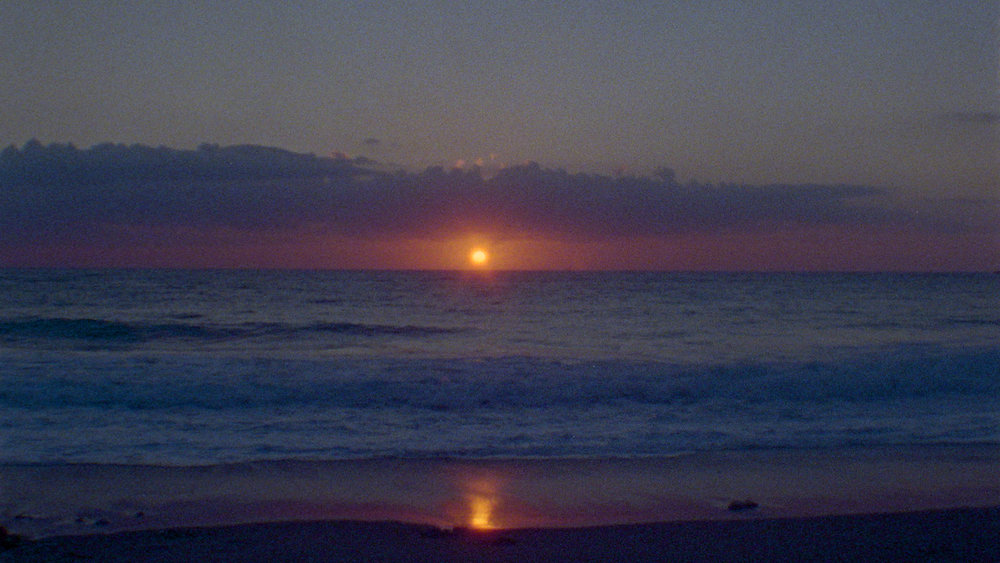video: Guillem Cruells, words: Alexei Obolensky
I’ll start with a confession.
I like failed states. I like limited Wifi. I like when the Foreign office “advises against all but essential travel”. Former warzones excite me, and I like the US Dollar being the currency of default, with the local currency being in multiples of a thousand. I like smoking inside. I like driving regulations as a largely fluid concept. Rabid dogs and assault rifles. I hate the term surf exploration but there is a certain romance to the unknown and if surfing can take you there, then sign me up.
Enter Lebanon. Ravaged by civil war from 1975 until 1990, and a brief but full-blown conflict via Israeli bombardment back in 2006, just to keep things interesting. Lebanon and Hezbollah are two words that are often intertwined. However, as per usual in Middle Eastern politics, political existence is a complicated affair to say the least. The old adage one man’s terrorist is another mans freedom fighter has never been so apt. In short, Hezbollah is a political group with a very, very active paramilitary wing that counts Iran, Syria, Iraq and North Korea as its allies. That counts NATO, the EU, the US and Australia as its foes – who in turn categorise Hezbollah as a Terrorist Organisation. An organisation that prides itself on having 10,000 missiles pointed at Israel. An organisation that at the time of writing holds a tenth of the seats in Lebanese parliament and cabinet.
As I said – it’s complicated.
If Hezbollah was a box office release, the reviews would read: ‘The state within a state’…‘Better armed than most countries’…‘The best secret service in the world’…‘Veterans of most major middle eastern conflicts’. … So we merrily booked tickets to Beirut, coinciding with a red-coloured swell marching its way across the Med.
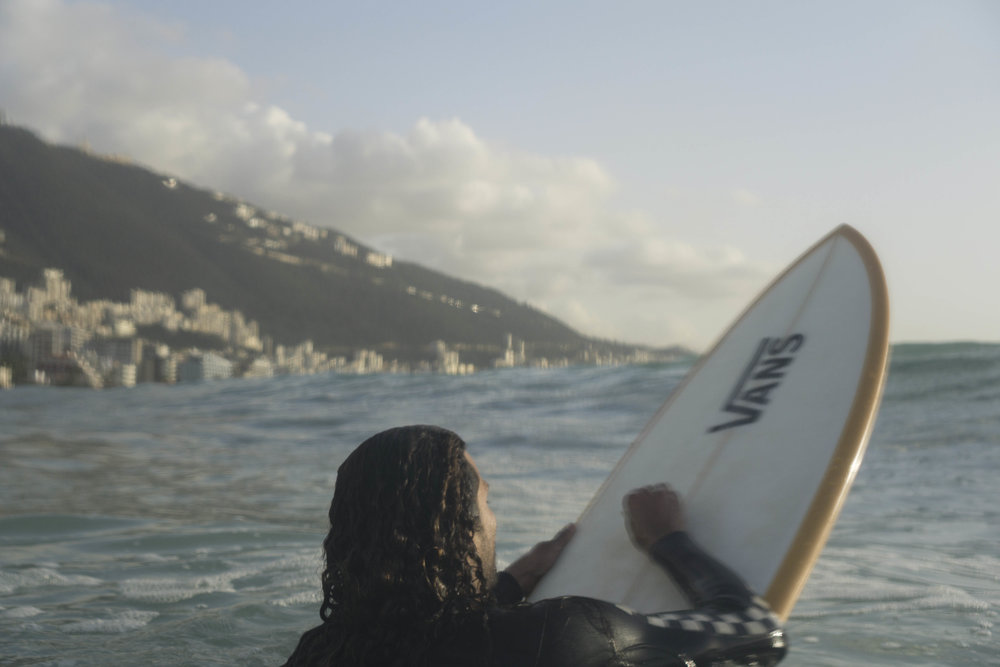
But dear readers, I must introduce you to our darling protagonist! Mr Adrien Toyon – born to a French mother and Lebanese father during the war, and when I say during the war, I mean born in a hospital basement, dust shaking from the walls from the shelling above. Due to the quite obvious fact that toddlers and warzones don’t feature highly in many parenting manuals, Adrien and his mother relocated to Reunion Island, from where his mother hails. It is here he learnt to surf, the famed, jewel of the island, nay indian ocean, left of St Leu providing a perfect canvas for the goofy footer avec un highly polished style. He now resides in Biarritz.
We had been talking about doing a Mediterranean strike mission for a while over a few glasses of Rioja in Biarritz and he floated the idea of the Lebanon. He told me of a mythical slab near where he was born that has never been surfed called ‘Yours’, and spoke of his yearning to surf it.
So there we were, three weeks later, at Lebanese passport control being asked by men with handsome moustaches and heavily braided shoulders if we had ever visited their sworn enemy Israel, wondering if this was such a good idea after all.
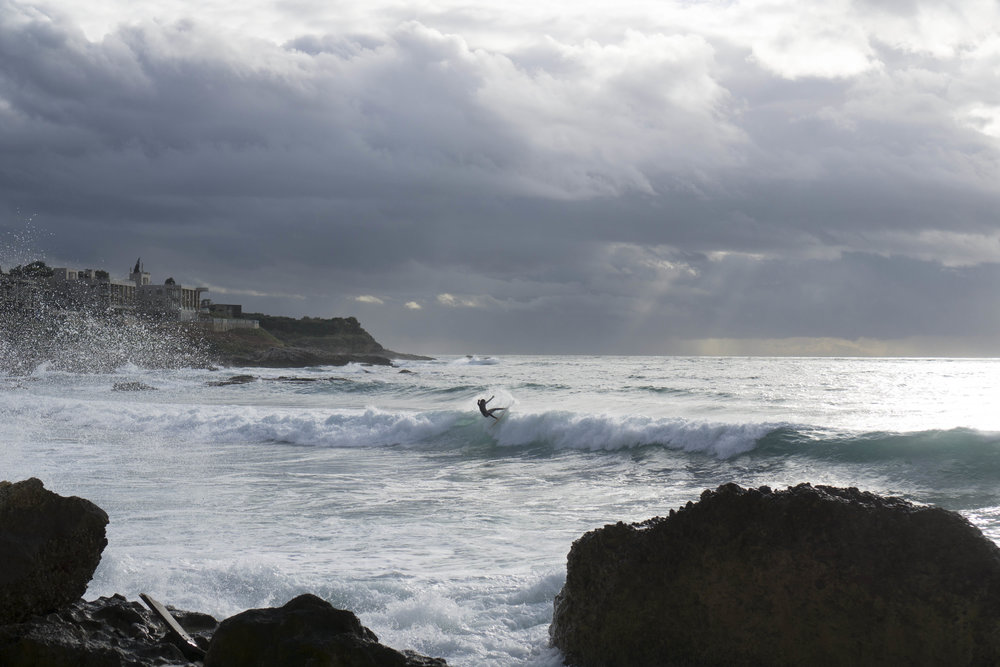
Arriving in Beirut, we duly present ourselves at the Ministry of Information to collect our filming permits. A man smoking a cigarette glares over an overflowing ashtray, all crumpled shirt and strong moustache. He asks us gruffly if we prefer Français or Anglais. We opt for the latter. He informs us the Ministry is closed and evidently not in a position to grant permits. He then softens and informs us that we don’t really need a permit. We shake hands firmly, cigarettes dangling from lips, and step back out into the Beirut traffic. LA traffic gets a lot of press, but it pales into insignificance compared with Beirut. All hours. Inside the city borders, traffic is at a standstill verging on the point of death by old age. Leaving the city borders, its to the point of death by suicide. Road regulations are a loose idea to say the least, and as we hurtle around corners, I close my eyes and think of calmer times. We leave Beirut and drive north to our rather charming (if 70s Arabian décor is your thing) beachside apartment in Jounieh. The light is golden and the sea is still. We sleep, and wait.
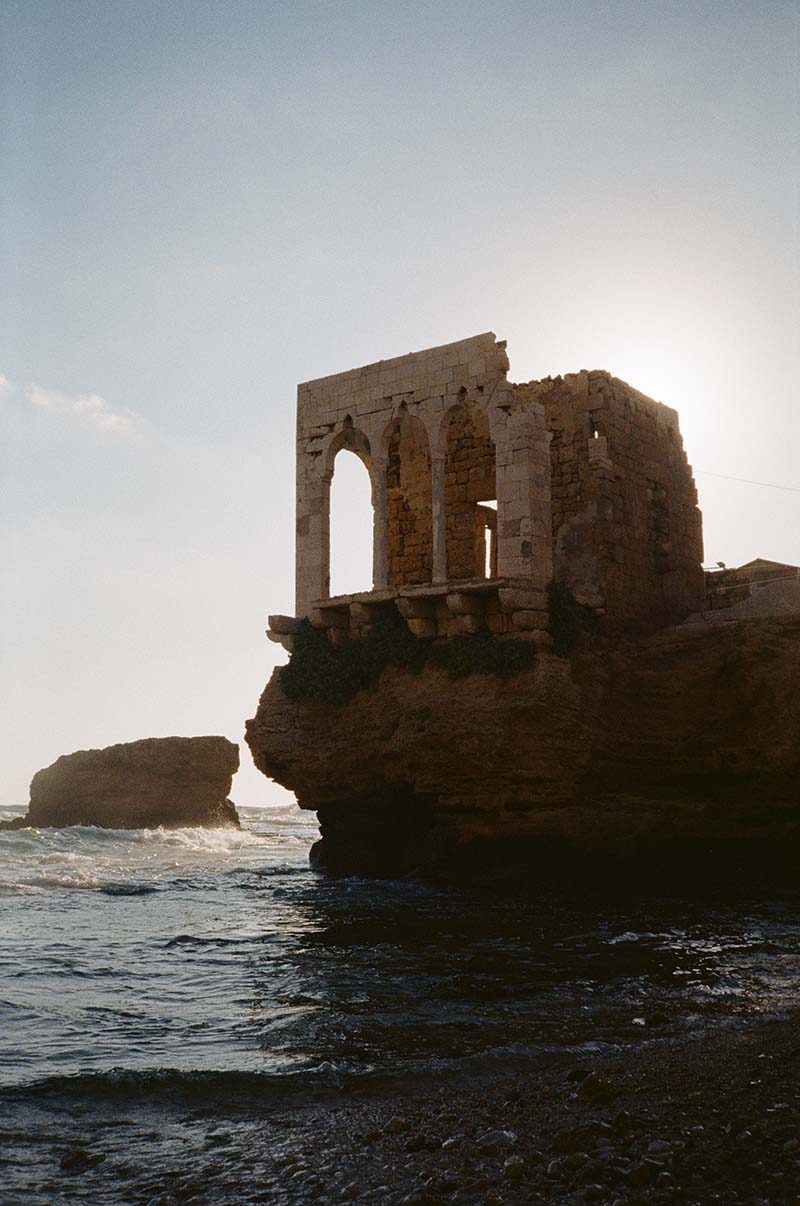
When visiting Lebanon it is imperative to talk about food. When I mentioned to a friend that we were going, I was met with a bemused look and told, “I hope you are ready to get fat”. I can now understand why. Breakfast is Manoushe in either Zaatar or Jebne flavours – essentially two pizzas on top of each other with cheese or spice. Lunch is usually skipped as two pizzas for breakfast is quite aggressive. But for those with a stomach the size of an Ox, lunch is a falafel wrap, the size of your arm. This brings us to dinner. My main piece of advice for those going to Lebanon would be to never, ever, under any condition finish your plate. The finishing of your plate signifies you are still hungry will usually result in someone force-feeding the nearest food into your mouth. The image of Adrien’s uncle ramming an entire fish, including head into our dear filmer Guillem’s mouth is one that will stay with me for a long time.
But enough of this culinary nonsense. The waves had arrived and were accompanied by a rainstorm of biblical proportions. We surfed a few beaches of questionable water quality, which were fun, but of a much to be expected Mediterranean standard – onshore, short period and a little weak. The swell built and we drove south looking for more.
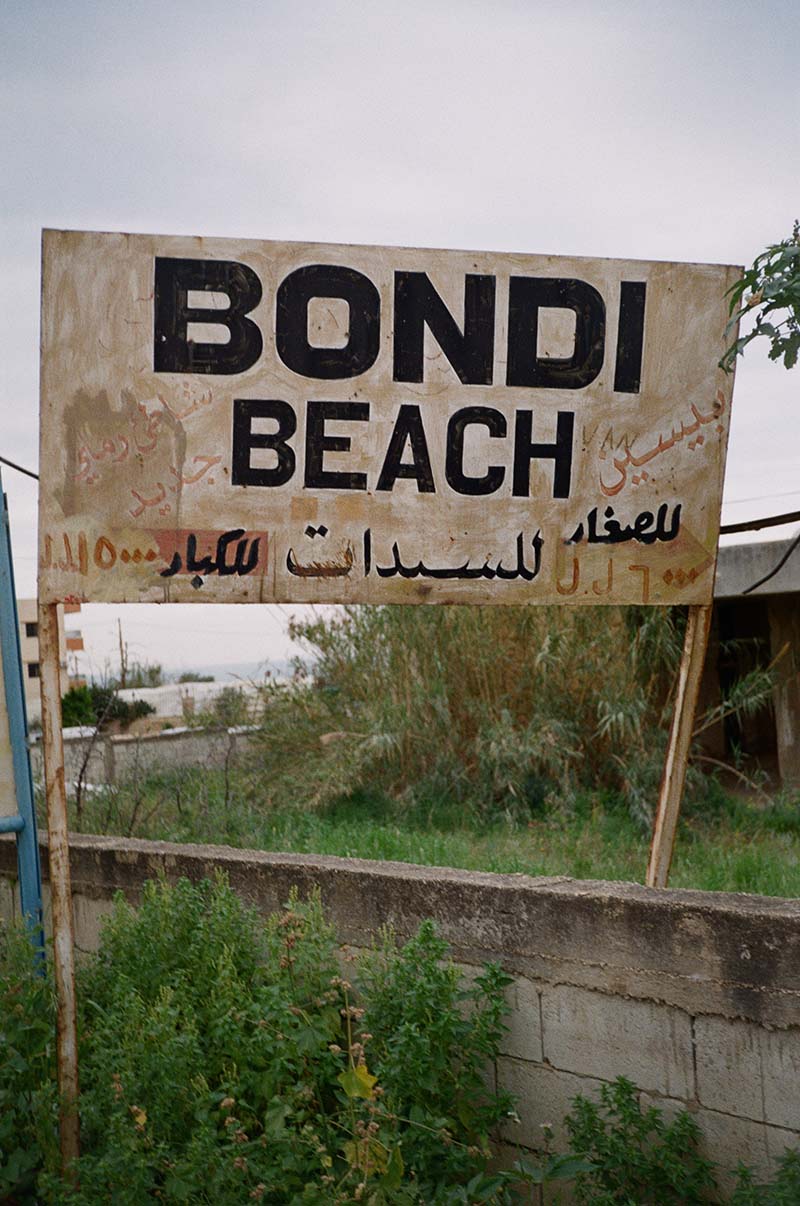
The South. As we drive through Hezbollah-controlled territory, we pass UN Humvees thundering by, complete with bored-looking soldiers manning rooftop machine guns. We drive through red and white roadblocks past more bored solders smoking cigarettes, leaning against sandbags, assault rifles dangling from slings, nonchalantly waving cars through.
We turn up at an A Frame, one of the few documented waves in Lebanon. There are surfers, the first we have seen, and they couldn’t have been friendlier. We surf, it is shifty but fun. I accidently leave my wetsuit on a fence in plain sight for hours and no one touches it. It is of note that the Lebanese are some of the friendliest people I have ever met. Articulate. Educated. Liberal. Supremely polite. Conversations are started by inquiring whether you prefer to converse in Français or English. A modern, progressive society reflected in its gentle people, keen to disparage the ghouls of the past and to show the rich cultural and social heritage of their beautiful nation.
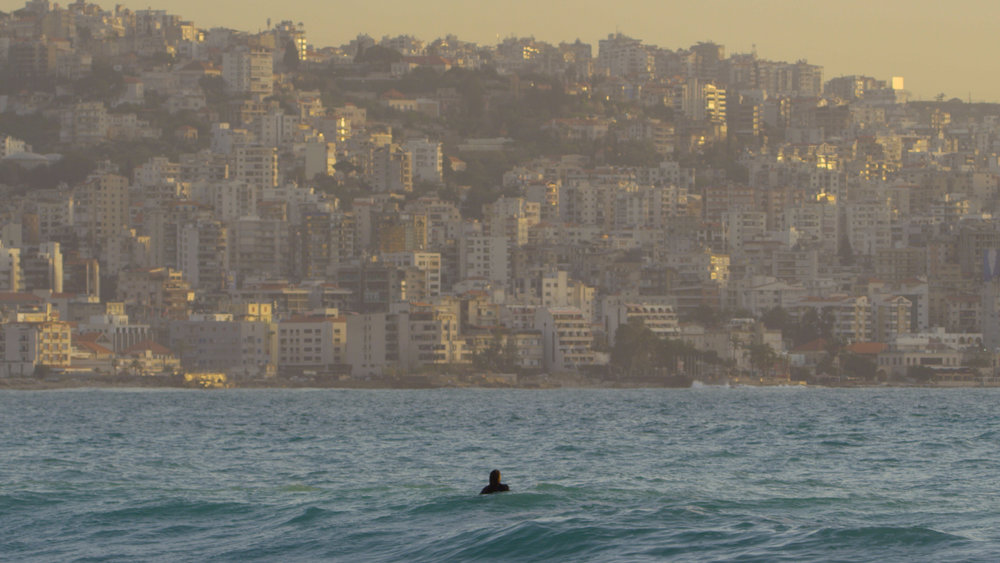
Driving north, we pass more soldiers and more roadblocks and are waved through by men in camouflage with rifles and glazed eyes. We meet a friend of Adrien’s – one of a highly welcoming surf community in the town of Byblos around two hours north. He informs us of a wave that breaks by a jetty that can be fun. We arrive. It’s flat. It’s half a foot lapping on the beach. We’re on a four-day strike mission and we’re cursing ourselves at driving two hours in the wrong direction for nothing.
We kick sand and scuff our feet, light cheap Lebanese cigarettes and try and formulate a plan. Suddenly, a bump of swell hits the end of the jetty. And another. And another. We can barely believe our eyes. The swell runs down the jetty and hits the sandbar. And holy shit. We stand with mouths open. A reeling right-hander breaks down the jetty and finishes on the sand. Feathering. It’s Kelly’s wavepool, but this time in the Mediterranean. Bowling its way past the industrial backdrop. We run to the car, clamber into drenched wetsuits whilst hollering with excitement. We surf for three hours. That night we drink the local beer, Almaza, to excess and smile on our good fortune. Lebanon, despite preconceptions, is a wonderfully liberal country and the beer is delicious, ice cold and available widely. We sleep.
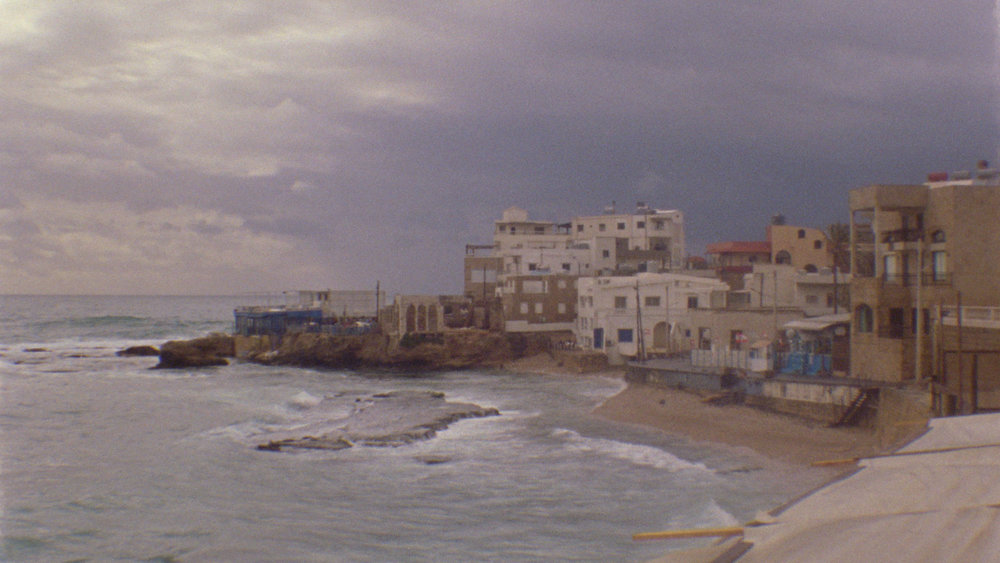
The next morning, we awake with fuzzy heads. The swell has built considerably and we agree the best option is to try and surf Kelly’s wave again. We speak on the way there about the rumoured slab named Yours. We decide to try and find it. We drive slowly up the coast, peering over the side of the road and down cliffs. Off the road, we see a lump of swell hit a rock and form a wave of some description. We decide that it is the slab. It must be, but in a word it is horrific. Shifty, breaking over boulders, clamping. Offshore but mean. However, we see one or two that are almost makeable. With no clue how to get in, or indeed out, our darling protagonist Adrien valiantly jumps over a few rocks and proceeds to put on a clinic of backside tube riding, negotiating one of the nastiest slabs we’ve seen in a while, conquering its steps and bumps with commendable finesse. For the second time in two days we can’t believe the quality of waves we are scoring, in a country that is categorically not a surf destination. Adrien gets out of the water after two hours and the wind has swung. He is unscathed. He is so happy there are almost tears.
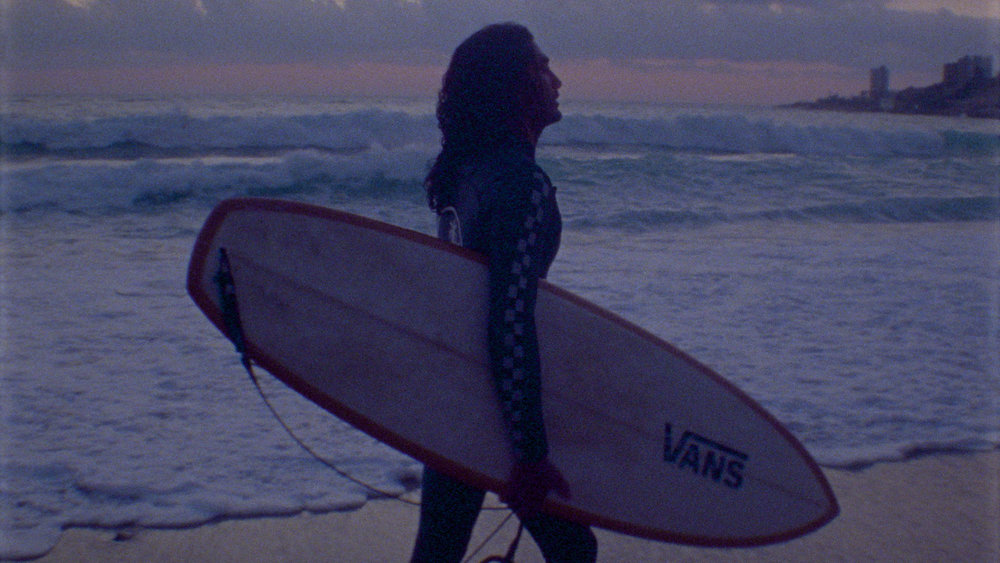
It’s true that the Lebanese surf scene is in its infancy. But what they lack in numbers, they make up for in bounds of enthusiasm – highlighted by the last evening watching beginners getting pounded in a sizeable pebble-bottomed shore break and coming up smiling, every time. Quite incredible. We share a few beers after surfing the same shorey. We show them screen grabs of the slab. Their eyes widen as they peer closer at the screen and they tell us that no one has ever surfed there. They have long checked it, wondering if it was possible. We feel a small, burning flame of achievement.
Wandering in the golden light through downtown Beirut on our last evening, under the bullet holes, shell craters and pocked facades of the old buildings overshadowed by the glistening new buildings, we reflect on our time here. A wave previously unsurfed, and surfed by a surfer born down the road during a turbulent time, gives us a rare sense of profundity. Lebanon is an amazing place. From the ashes of the civil war history, to now rebuilding as a beacon of liberty and prosperity in the Middle East, we can’t help but draw some parallels between it and Adrien’s slab. The food, the waves, the culture, the scenery and above all, the people, are amazing. We couldn’t have been made to feel more welcome, and we will remember the Lebanese hospitality for a long time.
We leave with a wry smile, knowing that Lebanon, its waves and surf culture has some bright days ahead.
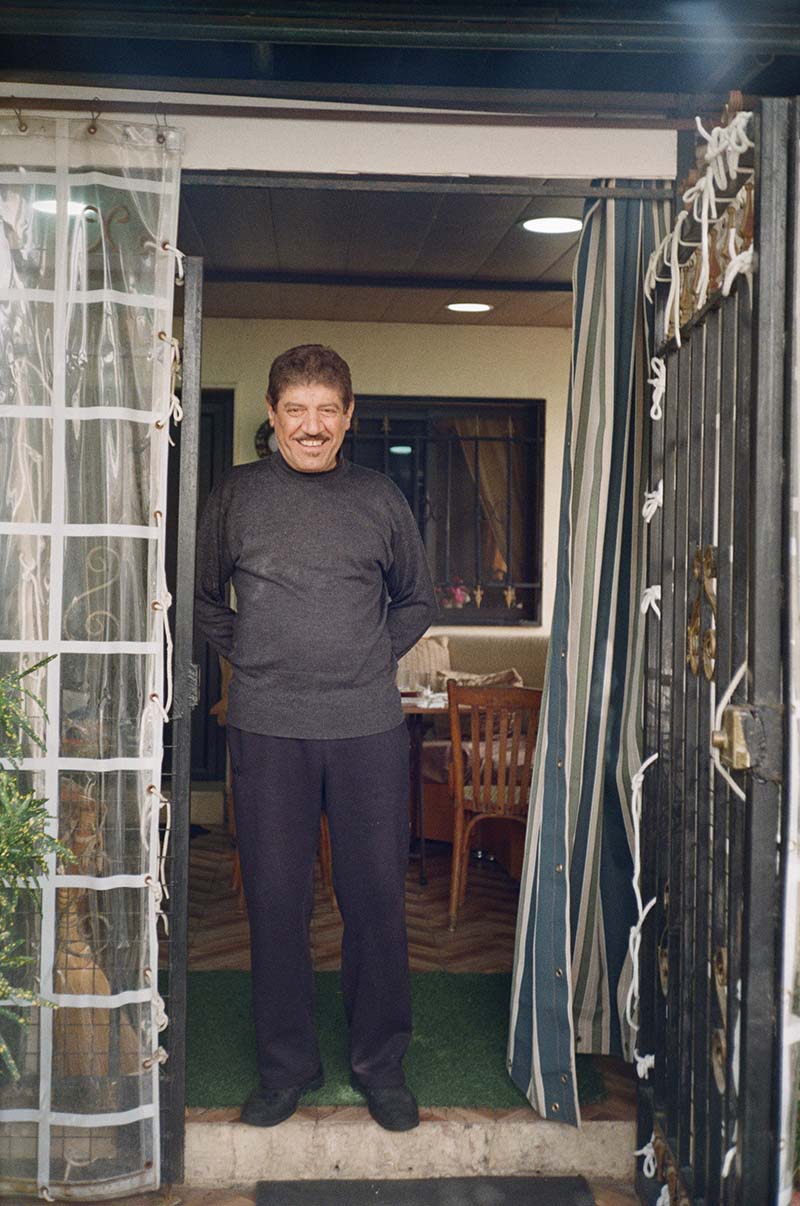
“When I arrived in Beirut from Europe, I felt the oppressive, damp heat, saw the unkempt palm trees and smelt the Arabic coffee, the fruit stalls and the over-spiced meat. It was the beginning of the Orient. And when I flew back to Beirut from Iran, I could pick up the British papers, ask for a gin and tonic at any bar, choose a French, Italian, or German restaurant for dinner. It was the beginning of the West. All things to all people, the Lebanese rarely questioned their own identity.”
Robert Fisk, Pity the Nation: The Abduction of Lebanon
